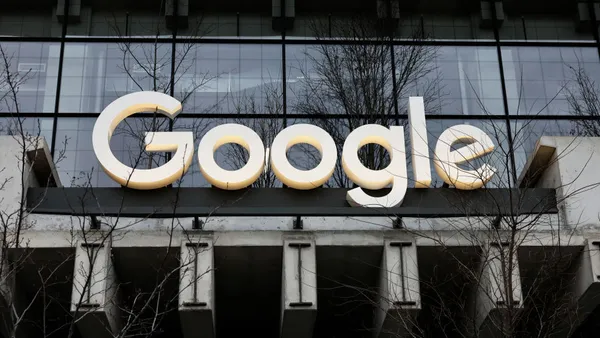Dive Brief:
- A broad swath of advertising trade bodies, brands, agencies, publishers and technology firms have formed the Partnership for Responsible Addressable Media (PRAM), an initiative that looks to establish new digital media standards that preserve marketing personalization while safeguarding user privacy, according to details shared with Marketing Dive.
- The formation of the organization comes as common digital marketing tactics, namely third-party cookies and mobile identifiers, start to be wound down. In its race to address these issues, the partnership will focus on four working groups: Business Practices; Technical Standards; Privacy, Policy, and Legal Considerations; and Communications and Education.
- Bill Tucker of the Association of National Advertisers (ANA) will serve as executive director of PRAM, which also features trade bodies the 4A's, the Interactive Advertising Bureau (IAB), the IAB Tech Lab, the Network Advertising Initiative and the World Federation of Advertisers. Brand-side members include Ford, General Motors, IBM, Procter & Gamble and Unilever, while agency representation includes IPG's UM and Publicis Media. NBCUniversal is the only publisher named in the group, while Adobe, LiveRamp, MediaMath and The Trade Desk make up its technology supporters.
Dive Insight:
PRAM is the latest sign that major advertising stakeholders are racing to formulate new digital media standards as foundational practices of online marketing enter their final days. Announcing the partnership, ANA Group Executive Vice President Tucker positioned recent shifts in the industry in especially doom-like terms.
"In the ancient story of the Tower of Babel, the city collapsed because its inhabitants lost the ability to speak a common language," Tucker said in a press statement. "The digital advertising industry faces a comparable challenge around addressability today, as recent changes announced by operating systems, browsers, and other technologies, if implemented, will significantly impact the traditional marketplace language of cookies and mobile IDs."
While the language is lofty, Tucker's comments key into seismic changes due to have a serious impact on advertisers, publishers and technology firms alike. In January, Google announced it would wind-down third-party browser cookies in Chrome within two years, a nail in the coffin for a bedrock tactic that's previously been blocked on Apple's Safari browser and Firefox.
Chrome's outsized share of the browser market — Statista estimates suggest it commands 70% of usage on desktop and 41% on mobile — indicates third-party cookies could essentially become null in the near future, and there isn't a clear alternative on the horizon. In fact, efforts to develop a viable replacement, including through the World Wide Web Consortium, or W3C, have seen little progress in recent months, as reported in Bloomberg.
Apple also recently revealed plans to change key functions of mobile advertising that have similarly left the industry scrambling. At its WWDC conference earlier this summer, the iPhone maker said it would make the Identifier for Advertisers (IDFA) opt-in for consumers. The change to a tool used for tracking and identifying a smartphone owner without sharing their personal data builds on past actions that have prioritized user security over advertisers' access.
Helping to drive these policy decisions are new data privacy regulations that have been met with strong pushback from the ad sector. The EU's General Data Protection Regulation has been in place for two years now — and has already doled out some hefty fines — while California's California Consumer Privacy Act just entered the enforcement period (not to mention myriad state-level bills being introduced around data privacy in the U.S.).
PRAM aims to tackle these issues on several fronts, keeping privacy concerns in mind while also ensuring marketers can reach consumers in a personalized fashion that tactics like cookies and mobile IDs have historically enabled. By breaking out its project into four working groups, the organization looks to tackle areas where its members have deeper expertise and resources. Representatives from the IAB Tech Lab, for instance, will oversee the technical standards division.
The collective will also build on some existing efforts to address the sunsetting of cookies, such as the IAB Tech Lab's Project Rearc that launched in February. Project Rearc intends to develop new IDs that can function across browsers without the need for third-party cookies, as reported in AdExchanger.
A focus on equal access and cross-platform enablement is present in the goals set by PRAM, and the success of the initiative will likely depend on stakeholders from across the industry buying in and adopting the new standards.















